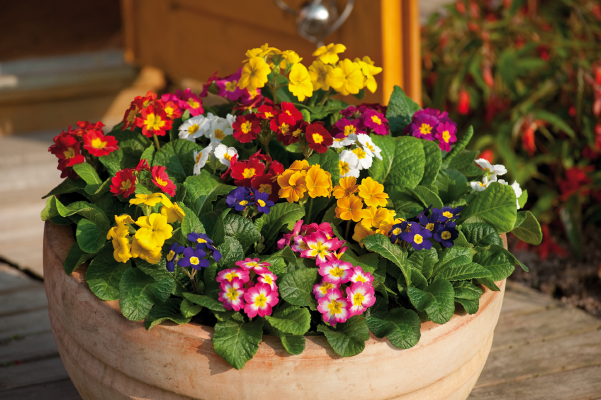

Piano
- Bred for fall and spring production
- Less chilling requirements allow greater versatility
- Extremely uniform in plant habit and flowering across the series
- Plants remain compact, even under heat
Technical Guide: Click here
All information in our technical guide is based on our own trials and would therefore be as guideline only. Detailed cultivation aspects vary depending on climate, location, time of year and environmental conditions. Benary expressly disclaims any responsibility for the content of such data/information and makes no representation or warranty for the cultivation of any products listed. It is recommended that growers conduct a trial of products under their own conditions.
- Crop Time
- Spring: 22 - 28 weeks , Autumn: 24 - 28 weeks
- Height ∅
- 8 ″ / 20 cm
- Width ∅
- 7 ″ / 18 cm
- Exposure
- Sun - Partial shade
- Seed Form
- Raw Seed
- Best Uses
- Bedding, Landscape, Pot Plant
Culture guide
Usage
Pots, combination planters, landscape plantings for fall and spring
Sowing method
1-2 seeds/Plug
Germination
Stage 1 (7-14 days)
Growing on
Transplant plugs after 9-11 weeks. Maintain temperatures of 60-65 °F (16-18 °C). Fertilize at 100-150 ppm nitrogen. Maintain pH levels of 5.5-5.8 and EC levels of <1.0.
Media
Well drained soil with low salt level, EC below 1.0, pH 5.8-6.2
Temperature
After potting 12-15 °C. Reduce temperature to 4-7 °C as soon as the plants have developed a good root system and 6-8 leaves. Overwintering frost free at 3-5 °C is possible, if plants have formed a good leaf rosette.
Fertilization
Moderate fertilization levels are required. Use a well-balanced calcium nitrate based formulation. Apply 100-150 ppm N as necessary to maintain an EC of 1.0. Later on use a fertilizer with N:K 1:1,5, as potassium deficiency causes leaf necrosis. At high nitrogen levels plants can become to leavy. Too high pH and too wet soil combined with low temperatures may cause iron deficiency. Apply chelated iron, if chlorosis becomes a problem.
Stage I Starts with the radicle breaking through the testa. The roots are touching the medium. Ends with fully developed cotyledons.
Stage II Starts from fully developed cotyledons. Ends with the fully developed true leaf or true leaf pair.
Stage III Starts from the fully developed true leaf or true leaf pair and ends with 80% of the young plants being marketable.
Stage IV All young plants are ready for sale and in the process of being hardened off. This stage lasts about 7 days.
The cultural recommendations are based on results from trials conducted under Central European conditions. Different conditions in other parts of the world may lead to deviations in results achieved.









